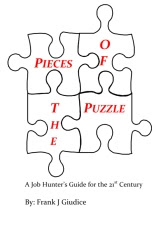
“Why don’t they do what they say, say what you mean, one thing leads to another”-The Fixx?
We’ve all heard the expression choose your words carefully and in writing your resume, the right words can mean the difference between a great resume and an ineffective one. One helpful clue to remember is choosing words what fit your mouth. And make sure you know the meaning of the words you use.
We’ve all heard the expression choose your words carefully and in writing your resume, the right words can mean the difference between a great resume and an ineffective one. One helpful clue to remember is choosing words what fit your mouth. And make sure you know the meaning of the words you use.
Choose Action Words
Use power words, words that describe action. Watch out for wishy-washy statements such as assisted. Assisted brings the image of someone who stood around in the background and only did something when asked. Say instead, part of a Team. You did the work, get the proper credit.
Use Ad Words
In the Ad you answered, the company told you exactly what they were looking for. So why don’t we tell them exactly what they want to hear?
When you answer an Ad, your resume is placed into the company database. Once here, it is scanned by a computer program, looking for Keywords. Which words?
The words used in the Ad, of course! The ones with the highest number of matches are then selected, by the computer, to go to the next step. This is a prime example of why you should tell the company what they want to hear.
Depth
When choosing words, look at the deeper meaning and which fits better. People constantly say they are reliable and dependable. But what they really mean is responsible. Create vs. develop is another example. Flexible vs. versatile. Assist vs. part of a Team.
Use power words, words that describe action. Watch out for wishy-washy statements such as assisted. Assisted brings the image of someone who stood around in the background and only did something when asked. Say instead, part of a Team. You did the work, get the proper credit.
Use Ad Words
In the Ad you answered, the company told you exactly what they were looking for. So why don’t we tell them exactly what they want to hear?
When you answer an Ad, your resume is placed into the company database. Once here, it is scanned by a computer program, looking for Keywords. Which words?
The words used in the Ad, of course! The ones with the highest number of matches are then selected, by the computer, to go to the next step. This is a prime example of why you should tell the company what they want to hear.
Depth
When choosing words, look at the deeper meaning and which fits better. People constantly say they are reliable and dependable. But what they really mean is responsible. Create vs. develop is another example. Flexible vs. versatile. Assist vs. part of a Team.
Know the Industry
This is one area where your knowledge of and research will pay off. By using the “language” of the industry, you can make your points meaningful. It shows interest in the field and respect for the job/company. The more you know, the better you can stand out and make an impact.
When you say what you mean, with words that fit, people notice. And since success in your career depends on your communication skills, make sure you choose the right words.
This is one area where your knowledge of and research will pay off. By using the “language” of the industry, you can make your points meaningful. It shows interest in the field and respect for the job/company. The more you know, the better you can stand out and make an impact.
When you say what you mean, with words that fit, people notice. And since success in your career depends on your communication skills, make sure you choose the right words.




